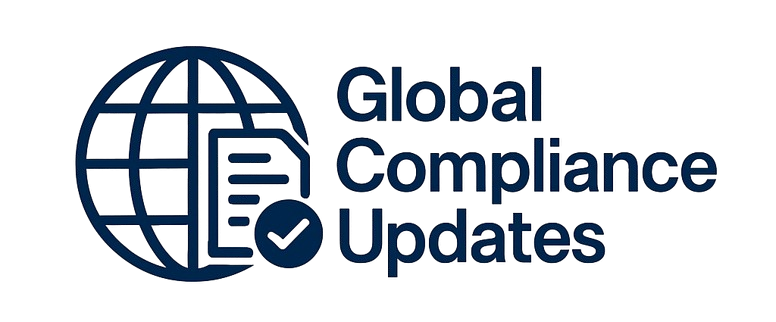Surcharging had been historically prohibited in the U.S. per the networks’ merchant rules, as well as prohibited by law in 10 states. Any state laws will continue to “trump” networks’ merchant rules. The recent changes in surcharging law could not only affect your merchant processing transactions but also your customers’ credit card usage.
When suppliers are reaping the rewards, they should not be adding a surcharge. They might overlook the benefits of card acceptance, as well as the cost of other payment methods like checks and cash. This training on credit card interchange fees rules will clearly explain the changes in the rules, which will benefit from the changes and how it will affect the retailers and customers.
WHY SHOULD YOU ATTEND?
The worst thing end-user organizations can do is to have an uninformed reaction to surcharging. It’s important to first look at the big picture. End-users should also educate suppliers about the economics of card acceptance, pointing out the savings possible and other benefits.
AREA COVERED
- History of surcharging
- What changed in the rules?
- Why did it change?
- Who may benefit?
- Sources of information
- Will this change anything?
- What you should do.
LEARNING OBJECTIVES
- Passing on interchange fees has always been against card network regulations
- Companies have found unique ways to get around the regulations or simply did not comply.
- An anti-trust lawsuit finally filed in 2005 and in July 13, 2012 the suit was finally settled.
- Credit card surcharging is prohibited in ten (10) states while another dozen states are considering legislation.
- This training on credit card surcharges compliance will discuss how the recent changes in law will affect end-user organizations.
- It will also provide attendees with the tools necessary to review and deal with any potential surcharge/checkout fee situations.
WHO WILL BENEFIT?
- Corporate accounts receivable managers
- Industries with large credit card receivables
- Multi-state corporations
- Retail organizations
- Financial Officers
- Risk Officers
- Internal Auditors
- Operational Risk Managers
- Credit Card Program Administrators
- Comptrollers
The worst thing end-user organizations can do is to have an uninformed reaction to surcharging. It’s important to first look at the big picture. End-users should also educate suppliers about the economics of card acceptance, pointing out the savings possible and other benefits.
- History of surcharging
- What changed in the rules?
- Why did it change?
- Who may benefit?
- Sources of information
- Will this change anything?
- What you should do.
- Passing on interchange fees has always been against card network regulations
- Companies have found unique ways to get around the regulations or simply did not comply.
- An anti-trust lawsuit finally filed in 2005 and in July 13, 2012 the suit was finally settled.
- Credit card surcharging is prohibited in ten (10) states while another dozen states are considering legislation.
- This training on credit card surcharges compliance will discuss how the recent changes in law will affect end-user organizations.
- It will also provide attendees with the tools necessary to review and deal with any potential surcharge/checkout fee situations.
- Corporate accounts receivable managers
- Industries with large credit card receivables
- Multi-state corporations
- Retail organizations
- Financial Officers
- Risk Officers
- Internal Auditors
- Operational Risk Managers
- Credit Card Program Administrators
- Comptrollers
Speaker Profile
 Ray Graber
Ray Graber
Ray Graber has a deep and thorough understanding of banking, technology, and finance. His business experience includes banking technology research at TowerGroup; best practices internet policies at FleetBoston Financial; wire transfer operations and product launches at Citibank and BankBoston; and treasury operations for a $325 million public company.Ray was an adjunct professor at the Carroll Graduate School of Management at Boston College where he taught E-Banking, MBA Leadership, Corporate Finance, and the Financial Management of Commercial Banks. He also taught Working Capital and Cash Management at the Bentley College Graduate Business Program.Ray holds a Bachelor of Arts degree in Mathematics …
Upcoming Webinars


Effective Communication: Ensuring Clarity, Accountability a…

2-Hour Virtual Seminar on Workplace Investigations 101: How…

Employers Should Prepare for Immigration Raids in 2026! Thi…

AI for Excel Professionals: Enhancing Productivity with Cha…

The Importance of the first 5 seconds when presenting

Negotiating Skills For Professional Results - Winning Strat…

Workplace Behavior in 2026: Tackling Conflicts and Incivili…

FDA Recommendations for Artificial Intelligence/Machine Lea…

Validation Statistics for Non-Statisticians

Bootcamp for New Managers and Supervisors: Develop These Es…


Interactive dashboards & analytics in Excel


Enhancing Project Management with Storytelling Techniques

4-Hour Workshop on Data Simplified: Sorting and Filtering, …

Creating Your 2026 Marketing Strategy

The Language of Leadership: Is Your Communication Style As …

ChatGPT for Innovative Business Advisory Services for Accou…


Utilizing A Proven Process When Conducting Sensitive, Inter…

How to Write Procedures to Avoid Human Errors

Human Factors Usability Studies Following ISO 62366 and FDA…

Why EBITDA Doesn't Spell Cash Flow and What Does?

Mastering DAX Patterns in the Era of AI & Copilot

Establishing Appropriate Quality Metrics and Key Performanc…


IRS Form 1099 Reporting: Compliance Requirements

FDA QMSR Explained: How the QMSR Replaces the QSR

How to Manage the Legal Landmine of the FMLA, ADA and Worke…

Understanding EBITDA – Definition, Formula & Calculation

Tattoos, hijabs, piercings, and pink hair: The challenges …

FDA Compliance And Laboratory Computer System Validation

Medical Device Hazard analysis following ISO 14971




Excel Spreadsheets; Develop and Validate for 21 CFR Part 11…

Excel + AI: The Smart User's Guide to Faster, Easier Work w…
